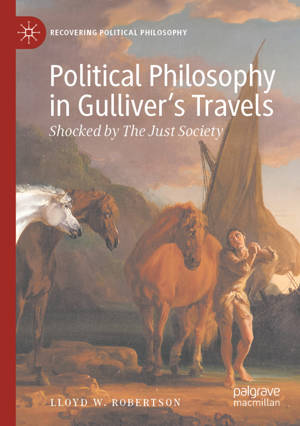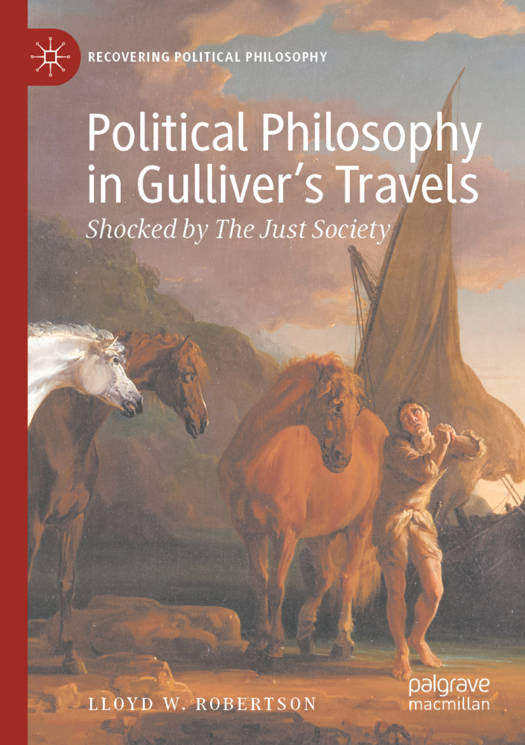
- Afhalen na 1 uur in een winkel met voorraad
- Gratis thuislevering in België vanaf € 30
- Ruim aanbod met 7 miljoen producten
- Afhalen na 1 uur in een winkel met voorraad
- Gratis thuislevering in België vanaf € 30
- Ruim aanbod met 7 miljoen producten
Omschrijving
This book analyzes Jonathan Swift's Gulliver's Travels from a political philosophy perspective. When authors have focused on politics in Swift's writings, this has usually meant a study of how Swift located himself on issues of his day such as church and state, and Ireland. Robertson claims by contrast that Gulliver's Travels is fundamentally a book about the "ancients" (e.g. Plato, Aristotle), and the "moderns" (science and technology), and their contrasting views about the human condition. The claim that the Travels is "a kind of prolegomena" to political philosophy leaves open the possibility that it does not achieve, or seek to achieve, a fusion of various teachings but rather uses the device of alien societies to point us to uncomfortable aspects of political philosophy's "larger questions" we are prone to ignore. Swift, Robertson argues, draws our attention to some version of the classical republic, as idealized in Aristotle's political writings andin Plato's Republic, as opposed to a modern regime which, at its best or most intellectual, emphasizes modern science and technology in combination as a way to improve the human condition.
Specificaties
Betrokkenen
- Auteur(s):
- Uitgeverij:
Inhoud
- Aantal bladzijden:
- 213
- Taal:
- Engels
- Reeks:
Eigenschappen
- Productcode (EAN):
- 9783030988555
- Verschijningsdatum:
- 3/07/2023
- Uitvoering:
- Paperback
- Formaat:
- Trade paperback (VS)
- Afmetingen:
- 148 mm x 210 mm
- Gewicht:
- 303 g

Alleen bij Standaard Boekhandel
Beoordelingen
We publiceren alleen reviews die voldoen aan de voorwaarden voor reviews. Bekijk onze voorwaarden voor reviews.











